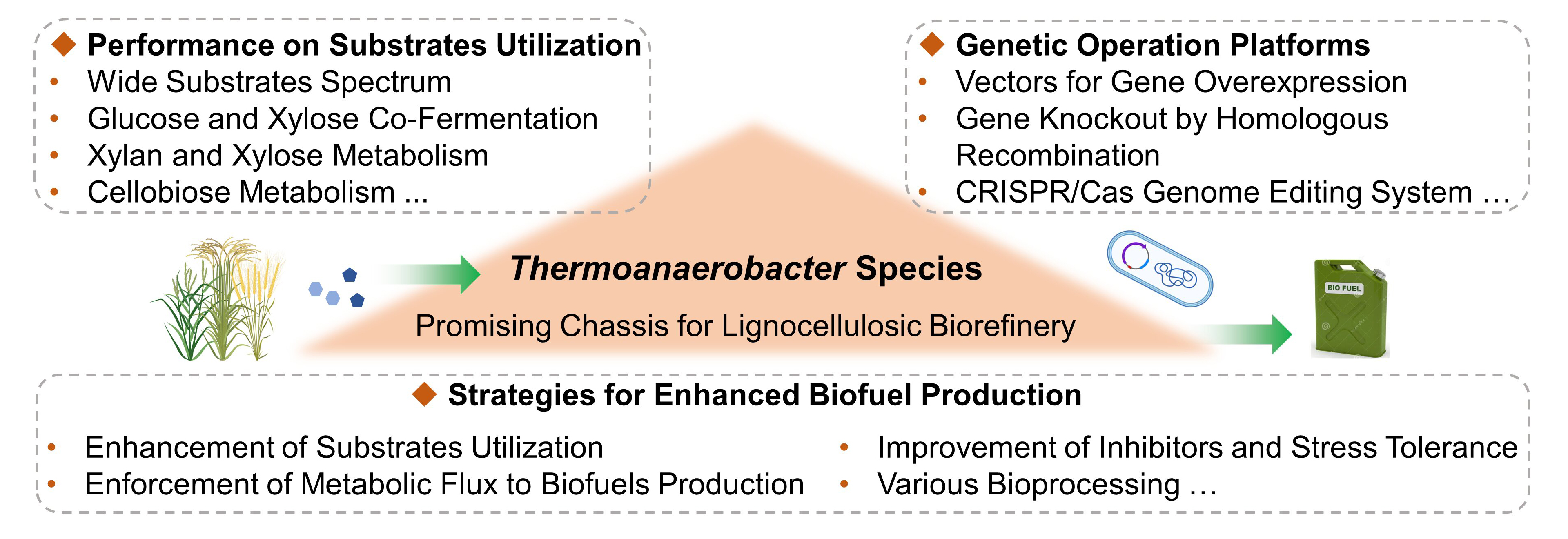Found 1 results
Review
15 March 2023Thermoanaerobacter Species: The Promising Candidates for Lignocellulosic Biofuel Production
Thermoanaerobacter species, which have broad substrate range and high operating temperature, can directly utilize lignocellulosic materials for biofuels production. Compared with the mesophilic process, thermophilic process shows greater prospects in consolidated bioprocessing (CBP) due to its relatively higher efficiency of lignocellulose degradation and lower risk of microbial contamination. Additionally, thermophilic conditions can reduce cooling costs, and further facilitate downstream product recovery. This review comprehensively summarizes the advances of Thermoanaerobacter species in lignocellulosic biorefinery, including their performance on substrates utilization, and genetic modification or other strategies for enhanced biofuels production. Furthermore, bottlenecks of sugar co-fermentation, metabolic engineering, and bioprocessing are also discussed.
